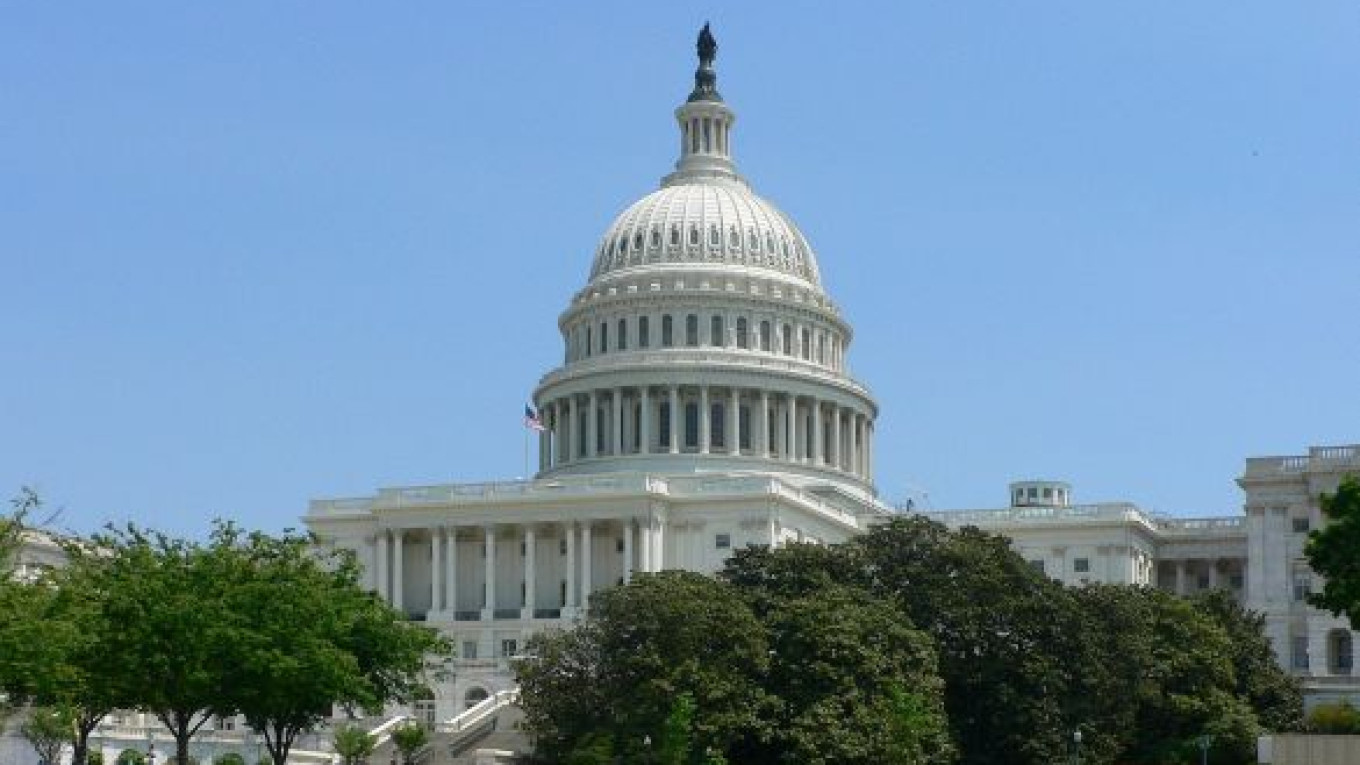Russia will impose a visa ban on U.S. citizens accused of human rights abuses in response to the "absurd" trade and human rights bill passed by the U.S. Senate on Thursday, Foreign Minister Sergei Lavrov said.
"We will also close entry to Americans who are guilty of human rights violations," Lavrov told reporters after a meeting with Secretary of State Hillary Clinton in Dublin late Thursday.
The Magnitsky Act, which lifts Cold War-era trade restrictions but also imposes sanctions on suspected human rights offenders, cleared the Senate by 92 to 4 votes on Thursday.
U.S. President Barack Obama welcomed the move and is expected to sign the bill into law before the end of the year.
The law repeals the Cold War-era Jackson-Vanik amendment, which barred the United States from establishing normal trade relations with Russia because of restrictions the Soviet Union imposed on the emigration of Jews and other minorities.
The United States was obliged to lift Jackson-Vanik after Russia joined the World Trade Organization earlier this year.
But another section of the bill bans Russian citizens believed to have been involved in the arrest, prosecution and death in custody of lawyer Sergei Magnitsky and other human rights violations from entering the United States.
The Foreign Ministry has called the human rights component of the bill "an exercise in the theater of the absurd" and warned immediately that the bill would have a "negative impact on bilateral relations," the responsibility for which "lies entirely with the United States."
No names have yet been mentioned as candidates for Russia's retaliatory list of U.S. human rights offenders, but Alexei Pushkov, the chairman of the State Duma International Affairs Committee, has suggested that it could blacklist U.S. officials accused of human rights violations in Afghanistan and Iraq.
Earlier it had been suggested that the Russian list would target U.S. officials involved in the arrest and prosecution of arms dealer Viktor Bout, who was extradited from Thailand to the United States over Russian objections in 2010.
An anonymous government source told Kommersant that the response would be "entirely symmetrical." "We will have as many people on our list as they have on theirs. If they add some people later — so will we," the source said.
President Obama immediately welcomed the normalization of trade relations, but made no direct reference to the human rights component of the bill.
"I commend the House and Senate for working on a bipartisan basis to pass legislation to end the application of the Jackson-Vanik amendment to Russia and Moldova, allowing me to extend Permanent Normal Trade Relations to both countries. I look forward to receiving and signing this legislation," he said in a statement posted on the White House website late Thursday.
"My administration will continue to work with Congress and our partners to support those seeking a free and democratic future for Russia and promote the rule of law and respect for human rights around the world."
Related articles:
A Message from The Moscow Times:
Dear readers,
We are facing unprecedented challenges. Russia's Prosecutor General's Office has designated The Moscow Times as an "undesirable" organization, criminalizing our work and putting our staff at risk of prosecution. This follows our earlier unjust labeling as a "foreign agent."
These actions are direct attempts to silence independent journalism in Russia. The authorities claim our work "discredits the decisions of the Russian leadership." We see things differently: we strive to provide accurate, unbiased reporting on Russia.
We, the journalists of The Moscow Times, refuse to be silenced. But to continue our work, we need your help.
Your support, no matter how small, makes a world of difference. If you can, please support us monthly starting from just $2. It's quick to set up, and every contribution makes a significant impact.
By supporting The Moscow Times, you're defending open, independent journalism in the face of repression. Thank you for standing with us.
Remind me later.


